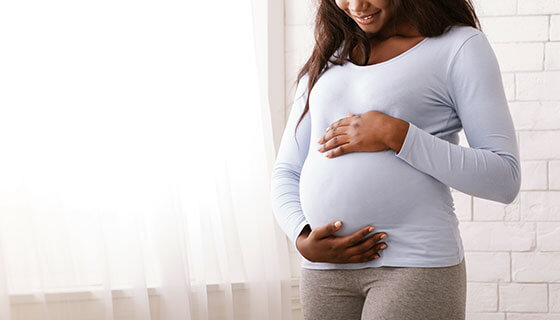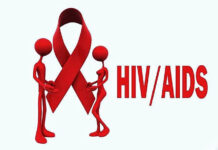The Federal Government says seven million pregnant women, and at least six million newborn births annually are being targeted through its safe motherhood guidelines launched on Monday.
The Coordinating Minister of Health and Social Welfare, Prof Muhammad Pate, while speaking at the launch of the guidelines titled, ‘The Labour Care Guide, and the Guidelines for Community Use of Misoprostol’, to commemorate the 2024 Safe Motherhood Day in Abuja, noted that it is possible to achieve safe motherhood in the country.
The reporter said that National Safe Motherhood Day is an annual event marked on April 11 to create awareness and generate public dialogue on the best strategies and interventions that can promote maternal and newborn health and survival within an integrated continuum of care.

Safe motherhood is meant to improve the life expectancy and quality of life of Nigerian women through the provision of quality maternal and newborn services while ensuring safety through properly supervised pregnancy, skilled attendance at birth, and post-delivery care at all levels of the healthcare delivery system, thereby reducing maternal mortality and morbidity.
This year’s Safe Motherhood Day is themed, ‘Investing in maternal health for a sustainable future’.
Pate said, “Safe motherhood can be achieved when every pregnancy receives all the pillars of safe motherhood, full antenatal care, skilled and facility-based delivery, quality care received at the facility, integrated postnatal care, including family planning, especially postpartum family planning and post-abortion family planning dealing with all the underlying causes of maternal mortality, and ensuring that every newborn is protected and supported to thrive.
“Nigeria has a large burden of preventable maternal deaths, and we also have a large burden of newborn mortality. We have made progress, but it is not enough. Every death of a mother is an unfortunate incident. No level of maternal mortality is acceptable.”
Pate said despite the progress made, postpartum hemorrhage remains a very important cause of maternal mortality and newborn mortality, asphyxia, and complications of preterm.
He said efforts are ongoing to ensure that all women in Nigeria have access to quality maternal care, irrespective of where they come from so that no woman is left behind.
The minister noted that healthcare is part of President Bola Tinubu’s key agenda, adding, “Tinubu unveiled the Nigerian Health Sector Renewal Investment Initiative in December with a compact between the 36 Governors, development partners, and the FG to ensure we improve population health outcomes in a sector-wide manner.”
He said the approved 25bn from the Basic Health Care Provision Fund through the National Primary Healthcare Development Agency, and the National Health Insurance Authority gateways is to ensure quality healthcare in reducing maternal mortality, access to basic emergency obstetric care, comprehensive emergency obstetric care, and availability of necessary commodities for safe delivery.
“We aim to reach at least seven million pregnant women through those services over time per year and at least, six million newborn births on an annual basis.
“That’s an aspiration, we are not there yet, but that is what we should be aiming for so that no woman is left behind when it comes to access to quality maternal care, access to skilled birth attendants, facility birth delivery, and the screening of non-communicable diseases like hypertension, diabetes in pregnancy, family planning, and to ensure affordability so that the Vulnerable Group Fund at the NHIA provides cover to reduce access to care for women,” he added.
The minister who also launched the calibrated drape noted that the introduction of the drape is an effective tool in significantly reducing postpartum haemorrhage by accurately measuring blood loss during childbirth, thus leading to early detection.
He said, “By incorporating the calibrated drape into maternal health protocols, we can better monitor and manage a haemorrhage and ultimately save the lives of mothers and their children.
“Our forecast and quantification of essential maternal health commodities including calibrated drapes will enhance the procurement, tracking, and accessibility by incorporating them into the Logistics Management Information System.
“Recognising the life-saving potential of one calibrated drape for one pregnant woman, this administration, in line with its agenda, will support the local production of calibrated drape and magnesium sulphate. I, therefore, support as a life-saving strategy, that each pregnant woman should have access to one calibrated drape,” he stated.
The United Nations Population Fund Resident Representative in Nigeria, Dr Gifty Addico lamented that Nigeria has one of the highest maternal mortality ratios globally, with thousands of women dying annually due to preventable pregnancy and childbirth-related complications.
Represented by the organisation’s Gender and Reproductive Health Specialist, Dr Musa Elisha declared, he said, “It is important for all pregnant women to deliver at health facilities where there are skilled attendants and appropriate equipment.
“However, women and girls across Nigeria continue to face challenges in accessing quality maternal and newborn care, particularly amongst the underserved, marginalised, and vulnerable populations.”
On her part, the Permanent Secretary at the Ministry of Health and Social Welfare, Daju Kachollom said with the launch of the documents, postpartum haemorrhage, preeclampsia/eclampsia, and unsafe abortion affecting maternal health in Nigeria will be addressed.
She added, “Together, we can build a country where every mother has the opportunity to experience the joy of childbirth in safety and dignity. We can create a future where every mother and newborn receives the care and support, they need to thrive.”




